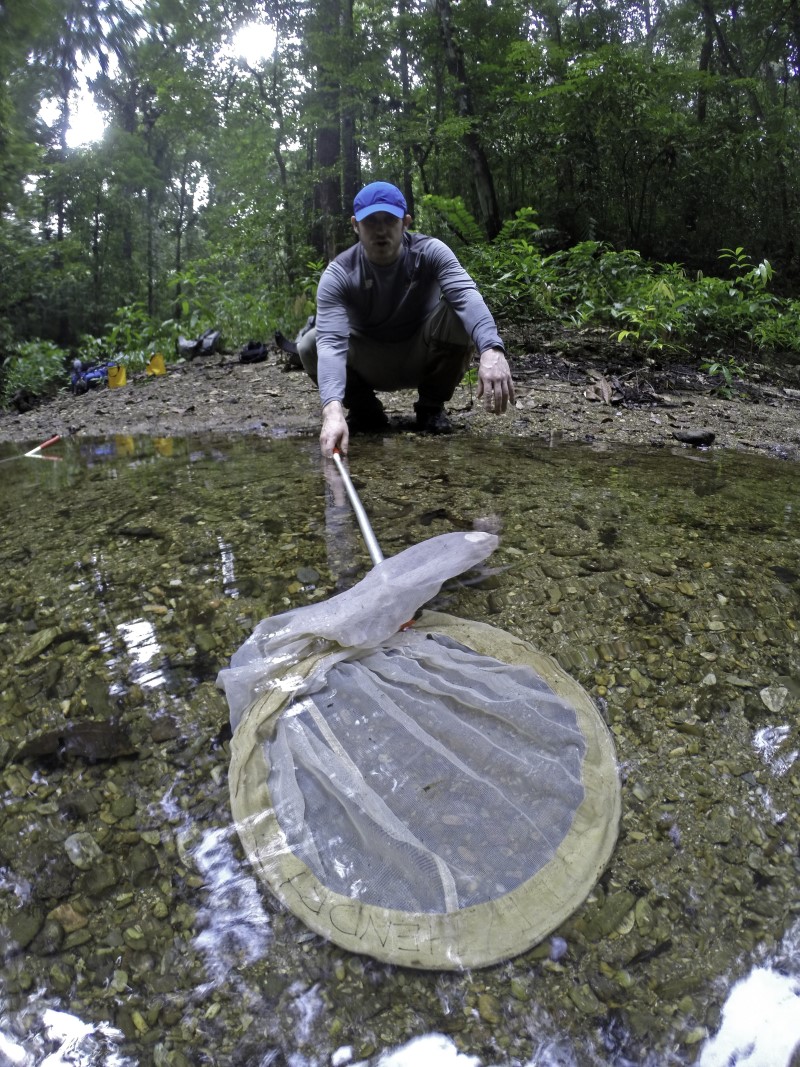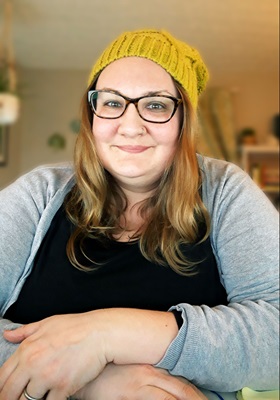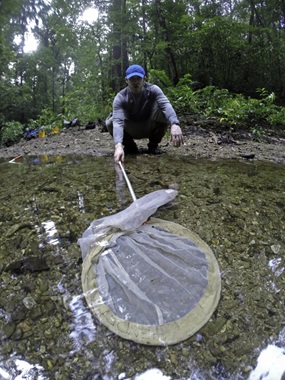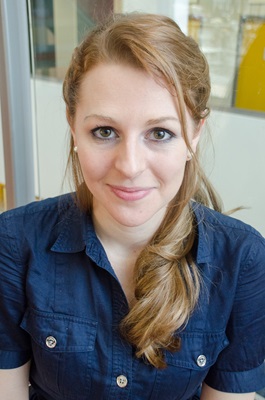Three new Associate Editors tell us a bit about their research, from ecology to psychology.

We are very pleased to welcome all our new Associate Editors that have joined the Royal Society Open Science editorial board in 2021. Here, we hear from three new recruits from backgrounds of ecology, animal behaviour, and psychology.
Christie Bahlai
I am an Assistant Professor of Computational Ecology at Kent State University, and my work focusses on biodiversity trends in insects in human-managed ecosystems. With my students, my lab examines the intersection of population ecology and information and data science, including examining how patterns vary when populations are captured using classical and ‘high tech’ methodologies, large scale data integration from disparate sources and scales, and developing new tools for analyzing spatio-temporal data. At the core, I’m most interested in how we think about data, variability and measurement, and how that affects our conclusions about environmental systems. Because environmental decision-making is inherently contentious, we need to be able to show the public and other scientists why we’ve reached the conclusions we have. My interests in open science emerged from this research: scientists have to make subtle decisions in their work that classical approaches to science communication don’t capture: open, reproducible data and code help support these goals.
Computational Ecology at Kent State University, and my work focusses on biodiversity trends in insects in human-managed ecosystems. With my students, my lab examines the intersection of population ecology and information and data science, including examining how patterns vary when populations are captured using classical and ‘high tech’ methodologies, large scale data integration from disparate sources and scales, and developing new tools for analyzing spatio-temporal data. At the core, I’m most interested in how we think about data, variability and measurement, and how that affects our conclusions about environmental systems. Because environmental decision-making is inherently contentious, we need to be able to show the public and other scientists why we’ve reached the conclusions we have. My interests in open science emerged from this research: scientists have to make subtle decisions in their work that classical approaches to science communication don’t capture: open, reproducible data and code help support these goals.
I’m so excited to be able to support open science and reproducible research through this new role at Royal Society Open Science. As a new Associate Editor, I look forward to helping authors hone and share their work in ways that other scientists can build on!
Adam Reddon
Currently, I am a Senior Lecturer in Behavioural Ecology at Liverpool John Moores University. I am interested in the behavioural biology of social living. I have a particular fascination with aggression, dominance, and group living. I seek to better understand social behaviour through the integration of functional, developmental, and mechanistic approaches. I primarily work with fishes in my research. In my laboratory, we are currently working with the cooperatively breeding daffodil cichlid, Neolamprologus pulcher. I have also worked on many other fish species, as well as birds and mammals, addressing a wide variety of questions about animal behaviour. Some of my current projects are focused on signalling in dominance interactions, how social context during development influences cognition, and the neuroendocrine mediators of dominance relationships.
in Behavioural Ecology at Liverpool John Moores University. I am interested in the behavioural biology of social living. I have a particular fascination with aggression, dominance, and group living. I seek to better understand social behaviour through the integration of functional, developmental, and mechanistic approaches. I primarily work with fishes in my research. In my laboratory, we are currently working with the cooperatively breeding daffodil cichlid, Neolamprologus pulcher. I have also worked on many other fish species, as well as birds and mammals, addressing a wide variety of questions about animal behaviour. Some of my current projects are focused on signalling in dominance interactions, how social context during development influences cognition, and the neuroendocrine mediators of dominance relationships.
I am pleased to be joining the editorial board Royal Society Open Science. I look forward to contributing my expertise to the direction of this diverse and exciting publication.
Jennifer Cook
Some people are densely-connected “nodes” in their social networks. They have many friends and acquaintances and are liked by many in return. Other people are more sparsely socially connected and have just a few, select, friends. My ongoing research at the University of Birmingham uses neuroimaging, behavioural and psychopharmacological approaches to uncover what it is that makes certain individuals socially well-connected. Developing a better understanding of social-connectedness may be useful in helping people to integrate into new social networks and - since well-connected people tend to live longer, and rate themselves as happier – may even improve health and wellbeing. Interestingly, social networks featuring both sparsely- and densely-connected individuals are present in many species, from honey bees to humans. Through collaborating with others who study the basis of social networks in bees, my research also aims to identify whether common factors underpin social-connectedness across diverse species. In doing so we hope to provide insight into the evolutionary origins of sociability.
“nodes” in their social networks. They have many friends and acquaintances and are liked by many in return. Other people are more sparsely socially connected and have just a few, select, friends. My ongoing research at the University of Birmingham uses neuroimaging, behavioural and psychopharmacological approaches to uncover what it is that makes certain individuals socially well-connected. Developing a better understanding of social-connectedness may be useful in helping people to integrate into new social networks and - since well-connected people tend to live longer, and rate themselves as happier – may even improve health and wellbeing. Interestingly, social networks featuring both sparsely- and densely-connected individuals are present in many species, from honey bees to humans. Through collaborating with others who study the basis of social networks in bees, my research also aims to identify whether common factors underpin social-connectedness across diverse species. In doing so we hope to provide insight into the evolutionary origins of sociability.
I am excited to be joining the Royal Society Open Science team. RSOS has a number of progressive policies, including transparent peer-review and open data, that I am really happy to support. I also particularly like that the journal welcomes the submission of all high-quality science, including articles which can be difficult to publish elsewhere (e.g. replications or those that include negative findings). I look forward to seeing the high-quality contributions roll in!
Interested in submitting to Royal Society Open Science? Visit our website to find out more.
Image Credits:
Christie Bahlai, self; Adam Reddon, by Andrew Hendry; Jennifer Cook, City University of London.



